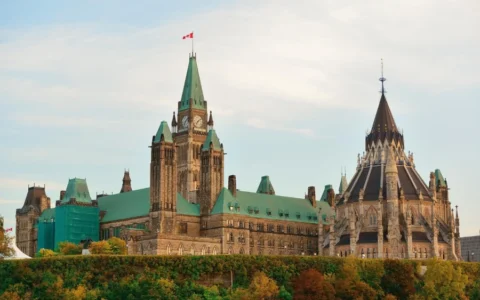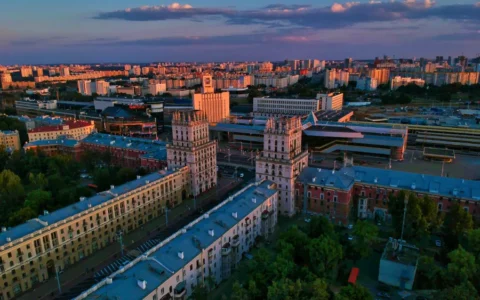In 2025, global citizenship and residency programs are no longer a one-size-fits-all solution. With shifting regulations, extended processing timelines, and increasing geopolitical pressures, investors today are choosing their second citizenship or residency based on what fits their specific needs—not just cost or passport power.
Some clients want a fast, tax-neutral passport as a backup plan. Others need long-term EU access for family relocation, or a business-friendly base for operations in the Middle East or Asia-Pacific. As demand grows more segmented, countries are adapting their offerings—some tightening rules, others launching new, targeted programs.
This article breaks down the leading citizenship and residency pathways in 2025, and more importantly, discusses which types of investors each program is best suited for—from mobile entrepreneurs to families, UHNW individuals, and ESG-driven strategists.
Caribbean Citizenship-by-Investment: Fast, Competitive, and Reforming
The Caribbean remains a top destination for fast-track citizenship, offering competitive pricing, quick processing, and minimal requirements. Five nations—Antigua & Barbuda, Dominica, Grenada, Saint Kitts & Nevis, and Saint Lucia—continue to anchor this region’s CBI landscape.
In 2024, these countries jointly agreed to standardize pricing and compliance following external pressure. By mid-2025, the revised minimum contributions are as follows:
- Antigua & Barbuda: $200,000 (family of four)
- Dominica: $200,000 (single applicant)
- Grenada: $235,000
- Saint Kitts & Nevis: $250,000
- Saint Lucia: $240,000
A key development this year is the draft agreement introducing a mandatory 30-day physical presence requirement within the first five years of citizenship. This measure expected to take effect by early 2026—is part of a regional response to heightened scrutiny from the EU and U.S., both of which have raised concerns over security screening and program integrity.
Read our full breakdown of the proposed 30-day stay requirement here.
Despite these reforms, The region remains especially popular among investors prioritizing speed, family inclusion, and global mobility—with most Caribbean passports offering visa-free access to the Schengen Area for up to 90 days and visa-free entry to Canada for those who have previously held a Canadian visa or currently hold a valid U.S. visa.
Sources: CIU St. Kitts & Nevis, Global Residence Index, CitizenX
Europe: Residency with a Path to Citizenship
For investors seeking eventual EU citizenship or long-term relocation, Golden Visa programs across Europe continue to hold appeal—though they come with higher costs and, increasingly, longer timelines.
Greece’s Golden Visa program presents a tiered structure based on property location. Investors can still qualify with €250,000 by converting commercial or heritage properties anywhere in Greece (Zone C). Regional residential investments require €400,000 (Zone B), while prime urban and tourist areas—including Athens, Thessaloniki, Mykonos, and Santorini—now demand €800,000. The program has no minimum residency requirement, grants visa-free access to the Schengen Area, and leads to permanent residency with the potential for citizenship after seven years. In 2024, the program received 9,289 applications, and although there is a significant backlog, processing efficiency has improved since April 2025.
Portugal continues to be a leading destination for investors seeking EU citizenship through a five-year residency route. The program offers flexible investment options and minimal physical presence requirements, making it attractive for globally mobile applicants. While the five-year timeline remains in place legally, applicants in 2025 should be mindful of administrative delays in both residence permit issuance and naturalization processing. In practice, the full journey may take longer—typically six to eight years—due to high application volumes and procedural backlogs. Nonetheless, Portugal remains a strong choice for those prioritizing long-term EU access and a clear path to citizenship.
Hungary, re-entering the market in 2025, now offers residency through a €250,000 government fund contribution or €155,000 into approved real estate development, with fast-track processing and eligibility for permanent residency. It has quickly become one of the EU’s most cost-efficient and accessible programs.
Latvia, while less publicized, offers a business route starting from €50,000, allowing investors to obtain renewable residency with long-term citizenship potential.
Sources: Enterprise Greece, Global Citizen Solutions – Portugal, Hungary Gov, Latvia PMLP
UAE and Asia-Pacific: Residency Without Citizenship Pressure
UAE
In contrast to passport-focused programs, a growing number of HNWIs are opting for strategic residency in jurisdictions that offer long-term economic stability, zero personal taxes, and high-quality infrastructure—particularly in the UAE and Asia-Pacific.
The UAE Golden Visa remains one of the most flexible programs globally. With a qualifying investment of AED 2 million (≈USD 545,000) in real estate or local business, investors receive a 10-year renewable residency. There are no physical stay requirements, no personal income tax, and the ability to sponsor family and staff. In 2025, new provisions were introduced to allow off-plan property and mortgage-backed options under select conditions.
The program has seen rising interest from entrepreneurs, crypto founders, and family offices especially from India, Russia, and China who seek a secure, low-tax base in the Middle East.
Singapore
Singapore’s Global Investor Programme (GIP) continues to attract ultra-high-net-worth individuals, particularly enterprise owners, family offices, and startup founders. The program requires either an investment of SGD 10 million in a local business, SGD 25 million in government-approved funds, or the establishment of a single-family office with at least SGD 200 million in assets under management, of which SGD 50 million must be deployed locally. As of 2025, the government also applies a processing fee of SGD 20,000. Successful applicants typically receive permanent residency within 9 to 12 months.
While the GIP does not guarantee citizenship, it offers long-term residency in one of Asia’s most advanced and stable financial centers. A key advantage is Singapore’s territorial tax regime. Only income sourced or remitted into Singapore is taxed. Most foreign-sourced income is exempt if it is not brought into the country. There is no capital gains tax, and the corporate income tax rate remains competitive at 17 percent, with a range of available incentives.
This structure makes Singapore an attractive base for fund managers, tech entrepreneurs, and global families seeking a secure, low-tax jurisdiction with strong regional access and top-tier infrastructure.
New Zealand
New Zealand relaunched its Active Investor Plus Visa in 2024, with a minimum NZD 5 million (USD ~3 million) investment into growth-focused companies or funds. The program explicitly excludes passive real estate, aligning with broader efforts to attract active economic participation.
Sources: UAE Government, EDB Singapore, Immigration NZ
Latin America – An Underrated Region with Strategic Residency Options
While most global conversations on investment migration revolve around Europe, the Caribbean, or Asia-Pacific, Latin America has quietly emerged as a region offering cost-effective and flexible residency pathways. In 2025, several Latin American countries stand out for their ease of entry, fast timelines, favourable tax treatment, and access to citizenship. These programs are particularly attractive to digital entrepreneurs, remote workers, early retirees, and those seeking long-term relocation with minimal bureaucracy and real-world affordability.
Panama
Panama remains one of the most accessible and business-friendly residency destinations in Latin America. Under the Qualified Investor Visa, foreign nationals can gain immediate permanent residency by investing $300,000 in real estate, $500,000 in securities, or $750,000 in a fixed-term bank deposit. Processing typically takes 30–60 days, and dependents can be included from the outset.
For entrepreneurs, Panama offers a dedicated Business Investor Visa, which allows applicants to obtain residency by establishing a company with at least $160,000 in capital and hiring local employees. This pathway supports active business participation and long-term relocation, with eligibility for permanent residency after two years.
Additionally, the Friendly Nations Visa remains a popular option for nationals of more than 50 countries. This route grants temporary residency with a $200,000 real estate investment or a time deposit, along with proof of economic solvency. After two years, applicants can apply for permanent residency, and eventual citizenship after three to five years of total residence.
Panama is particularly attractive due to its territorial tax regime, use of the U.S. dollar, strong financial infrastructure, and strategic location linking North and South America.
Costa Rica
Costa Rica offers one of the lowest investment thresholds in Latin America, with residency options starting at $150,000 through real estate, company shares, or investment portfolios. Residency is generally granted within a year, and applicants who maintain ties and meet physical presence requirements can apply for citizenship after seven years. Costa Rica’s strong healthcare system, eco-focused policies, and growing expat community make it a good fit for environmentally conscious families, early retirees, and wellness-focused remote professionals. Its territorial tax regime and stable democracy add to its appeal for those prioritising quality of life over passport strength.
Uruguay
Uruguay is often referred to as Latin America’s most stable and orderly country. It offers permanent residency from day one without a fixed investment requirement, as long as applicants can prove a steady source of income. The process is transparent and efficient, and those applying as a family can seek citizenship after just three years of physical presence, while single applicants are eligible after five. Uruguay is best suited for those looking to fully relocate, such as families, EU retirees, or professionals seeking a long-term lifestyle shift within a low-risk jurisdiction. It offers strong privacy protections, a well-developed legal system, and an attractive tax holiday on foreign-sourced income for up to eleven years, making it one of the region’s most sophisticated relocation destinations.
Paraguay
Paraguay has historically offered one of the easiest and most affordable permanent residency routes, attracting remote workers, minimalist investors, and location-independent entrepreneurs. While the previous bank deposit model is no longer available, applicants can still qualify by demonstrating a consistent monthly income—such as from remote employment, pension payments, or rental income—of at least $1,300 per month. Applicants must also obtain a local police record and medical certificate and open a bank account in Paraguay.
Residency is typically approved within four to six months, and applicants may apply for citizenship after three years of residency, provided they meet local integration criteria, including language proficiency and physical presence.
With low living costs, a territorial tax regime that exempts foreign-sourced income, and minimal bureaucratic hurdles, Paraguay appeals to younger investors, crypto users, and freelancers seeking a low-maintenance foothold in Latin America. The residency is indefinite once granted and does not require annual renewal, making it ideal for long-term planning without ongoing administrative burdens.
Argentina
Argentina is now positioning itself as one of the region’s most forward-thinking players by preparing to launch a formal citizenship-by-investment (CBI) program. The draft legislation proposes granting citizenship to foreign investors contributing at least $500,000 to qualifying projects across key sectors. Once enacted, this could become Latin America’s first official CBI route, offering direct access to citizenship and rights across the Mercosur bloc. Argentina’s urban infrastructure, cultural vibrancy, and regional mobility advantages make it ideal for investors who value strategic positioning, civil liberties, and regional work and residence rights over global visa strength.
Why Flexibility Matters More Than Ever
As 2025 unfolds, flexibility has become one of the most important factors for investors choosing between citizenship and residency programs. Depending on their goals, clients are now prioritizing structure over savings—seeking options that align with their lifestyle, family setup, and long-term mobility needs. For many, the ideal program is not the cheapest, but the one that allows for:
- Minimal or no physical residency requirements
- Inclusion of spouses, children, and in some cases, parents
- No language exams or cultural integration demands
- Clear and secure pathways to renewal or citizenship
This shift underscores the need to match each investor with a program that reflects not just where they want to go—but how they want to live, operate, and plan for the future.
Matching Investment Migration Programs to Investor Priorities
Caribbean – For Those Seeking Strategic, Tax-Neutral Citizenship
Caribbean programs like Dominica, Antigua & Barbuda, Grenada, Saint Lucia, and St. Kitts & Nevis remain in demand among investors who want a second passport for mobility, security, or estate planning—not relocation. They appeal especially to entrepreneurs, digital nomads, and families in unstable regions seeking tax neutrality and global access. While processing now takes 6–9 months, and a proposed 30-day stay requirement may soon apply, these programs still offer one of the most accessible citizenship routes with no income or capital gains tax.
EU – For Long-Term Mobility and a Path to Citizenship
Applicants prioritizing Schengen mobility, long-term family relocation, and eventual EU citizenship often choose Greece, Hungary, or Portugal. These programs are well-suited for those willing to make a real estate or fund-based investment and wait for citizenship over several years. They appeal to families seeking access to European education, healthcare, and a stable long-term base.
UAE – For Business and Tax Residency Without Citizenship
The UAE Golden Visa is favored by entrepreneurs, crypto investors, and business owners looking for a reliable, tax-neutral jurisdiction. With no stay requirements and renewable 10-year residency, it suits individuals who do not need citizenship but want operational flexibility, access to global markets, and personal security.
Asia-Pacific – For UHNW Relocation and Institutional Investors
Programs in Singapore and New Zealand are geared toward ultra-high-net-worth individuals and institutional-level investors. With high entry thresholds and more selective criteria, they suit professionals, fund managers, and family offices planning long-term relocation to politically stable, highly regulated jurisdictions with robust financial ecosystems.
Latin America – For Long-Term Relocation and Cost-Efficient Residency
Latin American countries continue to appeal to investors who prioritize long-term relocation over immediate global mobility. For remote professionals, early retirees, or those seeking a full lifestyle shift, countries like Panama, Uruguay, and Paraguay offer permanent or fast-track residency at a fraction of the cost of European or Caribbean programs. These jurisdictions typically operate under territorial tax systems, meaning foreign income is either exempt or lightly taxed, which makes them especially attractive for digital entrepreneurs and family offices with international holdings. While citizenship usually requires several years of presence and integration, the programs provide stability, flexibility, and a practical foundation for those who plan to relocate and build deeper personal or economic ties within the region.
For ESG Alignment and Strategic Positioning
Smaller or emerging programs like Nauru’s climate-linked citizenship initiative are positioned for a niche segment of investors who value geopolitical alignment, humanitarian branding, or ESG-driven positioning. These programs do not compete on mobility but serve strategic or symbolic functions for select investors.
Adaptability Over Price
The investment migration landscape in 2025 is defined by diversification and reform. Whether it’s a fast Caribbean passport, a long-term EU pathway, or a flexible residency in Dubai or Singapore, or a low-cost relocation option in Panama, Uruguay, or Paraguay, the right program depends on each investor’s personal goals—mobility, business relocation, generational planning, or geopolitical risk management.
What’s clear is that programs which prioritize transparency, efficiency, and investor experience will lead the next wave. For HNWIs, adaptability has become more valuable than just affordability.
For detailed program comparisons, regulatory updates, and investor insights, visit Outbound Investment.






